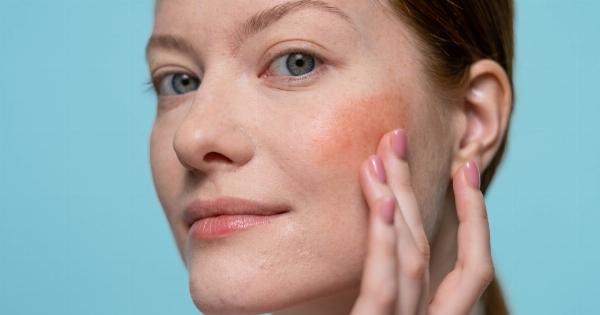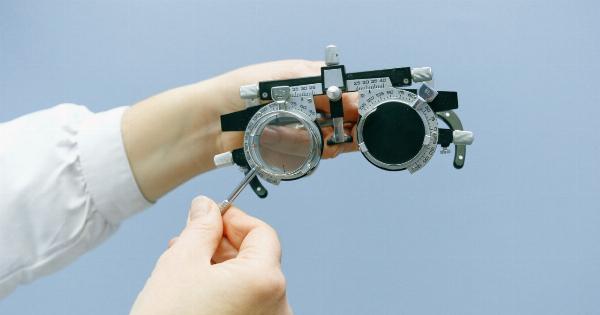Your face can reveal a lot about your health, including any vitamin deficiencies you may be experiencing. Vitamin deficiencies can lead to a variety of health issues, from fatigue and weakness to serious illnesses.
By understanding what to look for on your face, you can identify potential deficiencies early and take steps to address them.
What are Vitamin Deficiencies?
Vitamins are essential nutrients that your body needs to function properly. There are thirteen different vitamins that your body needs, including vitamins A, C, D, E, K, and the B-complex vitamins.
If you do not get enough of these vitamins, you may experience a deficiency.
Vitamin deficiencies are more common than you might think. According to the World Health Organization, approximately one-third of the world’s population suffers from a vitamin deficiency.
This can be due to a variety of factors, including poor diet, lack of sun exposure, and certain medical conditions.
What are the Symptoms of Vitamin Deficiencies?
The symptoms of vitamin deficiencies can vary depending on the vitamin in question. However, there are some general symptoms that are common across many vitamin deficiencies.
Some of the most common symptoms of vitamin deficiencies include:.
- Fatigue and weakness
- Brittle or weak nails
- Slow-healing wounds
- Dry or dull skin
- Difficulty seeing in low light
- Muscle weakness or cramps
- Depression or mood swings
How to Read Your Face for Vitamin Deficiencies
Your face can reveal a lot about your health, including any potential vitamin deficiencies. Here are some signs to look for on your face:.
1. Pale Skin
If your skin has a pale or whitish tone, it could be a sign of anemia, which is a condition caused by a lack of iron in your diet. Iron is essential for the formation of hemoglobin, which carries oxygen to your body’s cells.
Without enough iron, your body cannot produce enough hemoglobin, resulting in anemia.
2. Dry Skin
Dry skin can be a sign of a variety of vitamin deficiencies, including vitamins A and E. These vitamins help to keep your skin healthy and moisturized.
If your skin is dry and flaky, try increasing your intake of foods rich in these vitamins, such as sweet potatoes, spinach, and almonds.
3. Puffy Eyes
If you wake up with puffy or swollen eyes, it could be a sign of a vitamin B12 deficiency. This vitamin is essential for the formation of red blood cells, which carry oxygen to your body’s cells.
Without enough B12, your body cannot produce enough red blood cells, leading to fatigue and weakness.
4. Acne
If you experience frequent acne breakouts, it could be a sign of a zinc deficiency. Zinc is essential for the formation of collagen, which helps to keep your skin healthy and clear.
Try increasing your intake of zinc-rich foods, such as oysters, beef, and pumpkin seeds, to see if it helps improve your skin.
5. Bleeding Gums
Bleeding gums can be a sign of a vitamin C deficiency. This vitamin is essential for the formation of collagen, which helps to keep your gums healthy and strong.
Without enough vitamin C, your gums can become weak and inflamed, leading to bleeding and gum disease.
6. Pale Lips
If your lips have a pale or whitish tone, it could be a sign of an iron deficiency. Iron is essential for the formation of red blood cells, which carry oxygen throughout your body.
Without enough iron, your body cannot produce enough red blood cells, leading to fatigue and weakness.
7. Hair Loss
If you are experiencing hair loss, it could be a sign of a biotin deficiency. Biotin, also known as vitamin H, is essential for the formation of keratin, which is a protein that makes up your hair and nails.
Without enough biotin, your hair can become weak and brittle, leading to hair loss.
8. Dark Circles
If you have dark circles under your eyes, it could be a sign of a vitamin K deficiency. This vitamin is essential for blood clotting, and without enough of it, your skin can become thin and fragile, leading to dark circles under your eyes.
9. White Spots on Nails
If you have white spots on your nails, it could be a sign of a zinc deficiency. Zinc is essential for the formation of keratin, which makes up your nails.
Without enough zinc, your nails can become weak and brittle, leading to the formation of white spots.
10. Cracks at the Corners of Your Mouth
If you have cracks at the corners of your mouth, it could be a sign of a vitamin B2 deficiency. This vitamin is essential for the metabolism of carbohydrates, fats, and proteins, and without enough of it, your body cannot produce energy efficiently.
This can lead to cracks and sores at the corners of your mouth.
Conclusion
Vitamin deficiencies can lead to a variety of health issues, from fatigue and weakness to serious illnesses. By understanding what to look for on your face, you can identify potential deficiencies early and take steps to address them.
If you are experiencing any of the symptoms mentioned above, talk to your doctor about testing for vitamin deficiencies and adjusting your diet or taking supplements as needed.




























